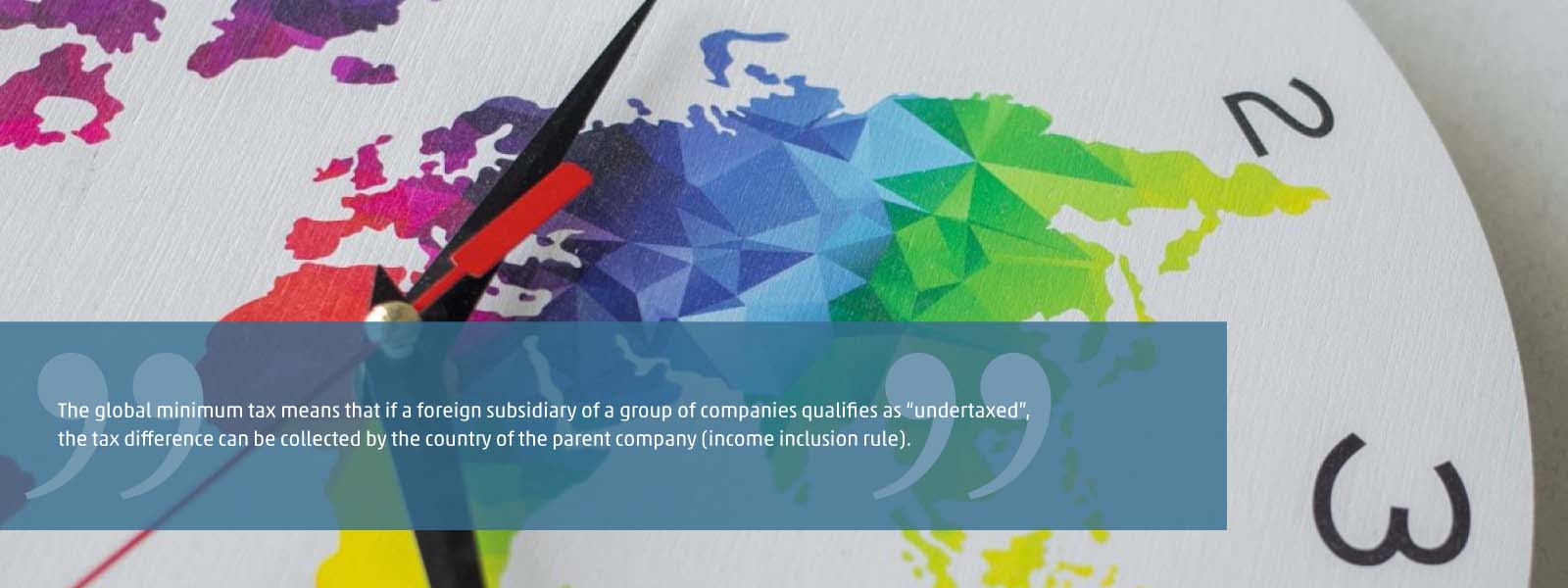The OECD started developing the regulatory framework for a global minimum tax in 2019. As of today, the agreement has been signed by 136 countries which means that governments will levy a standard 15% corporate tax on multinational companies in the future (according to the optimistic scenario, from 2023). This is how the global minimum tax makes tax evasion more difficult for multinational companies, while creating fair taxation. Let’s see what it means for Hungary and what we should pay attention to. However, it is important to know that currently we can only talk about drafts and the results of ongoing negotiations, which may change in the future.
Whom does the global minimum tax apply to?
On 8 October 2021, Hungary officially announced it would join the agreement on the global minimum corporate tax, thus all OECD and G20 countries now support the idea.
The global minimum tax will only apply to multinational companies with consolidated sales revenues exceeding EUR 750 million, thus the majority of local enterprises will not be subject to the regulation directly. Government agencies, international organisations, non-profit organisations, defined pension funds or investment funds will not be subject to the regulation.
Essence of global minimum tax
Without a more precise description of the detailed rules that are being developed, the global minimum tax means that if a foreign subsidiary of a group of companies qualifies as “undertaxed”, the tax difference can be collected by the country of the parent company (income inclusion rule). The minimum tax is based on the data of the group’s consolidated financial statements. With regard to the global minimum tax, however, detailed rules are also being developed for cases where this difference can be collected by the countries of the subsidiaries, creating the right of taxation in the country where the income is generated (source country) if the taxation in the country receiving the income is lower (undertaxed payment rule).
Conditions in Hungary
In Hungary, the 9% corporate tax rate would remain in the future and we can apply a special calculation method for the substance carve-out. It means that corporate assets and salary payments will be deductible from the tax with a specific calculation method. Companies not engaged in fictitious activities but rather in activities that involve actual payments of assets and wages will be in a more favourable position. The substance carve-out is 8% of tangible assets and 10% of payroll. The allowances will apply to a 10-year transitional period and previous rates would fall to 5% in the long run. For Hungary it would definitely be a positive development if – apart from corporate tax – the local business tax or even the innovation contribution could be taken into account when calculating the minimum effective tax rate.
Questions about the global minimum tax
The global minimum tax and the Multilateral Convention, together with the bilateral tax treaties currently in force and the mandatory application of transfer pricing rules, are expected to lead to very complex international tax situations. There are also many questions about the bilateral treaties. One only has to think of the open question of what to do with an “obsolete” type of tax defined in a tax treaty signed a long time ago, and what to do with the hybrid taxes that have been introduced in the meantime, which display both sales tax and income tax characteristics. Tax collection will not be easy either, since an international tax structure generally does not consist of two countries and two levels but covers many countries and activities.
From a Hungarian point of view, the number of companies affected by the global minimum tax is very low; companies stepping into the international arena but falling short of the global scale thankfully do not have to apply these rules. However, the changes to the Multilateral Convention will require constant monitoring of legislative changes, and the complexity of global tax calculations will also pose a challenge. The financial managers of multinational companies should definitely consult a tax expert about the new tax, so please do not hesitate to contact us if you have questions.











